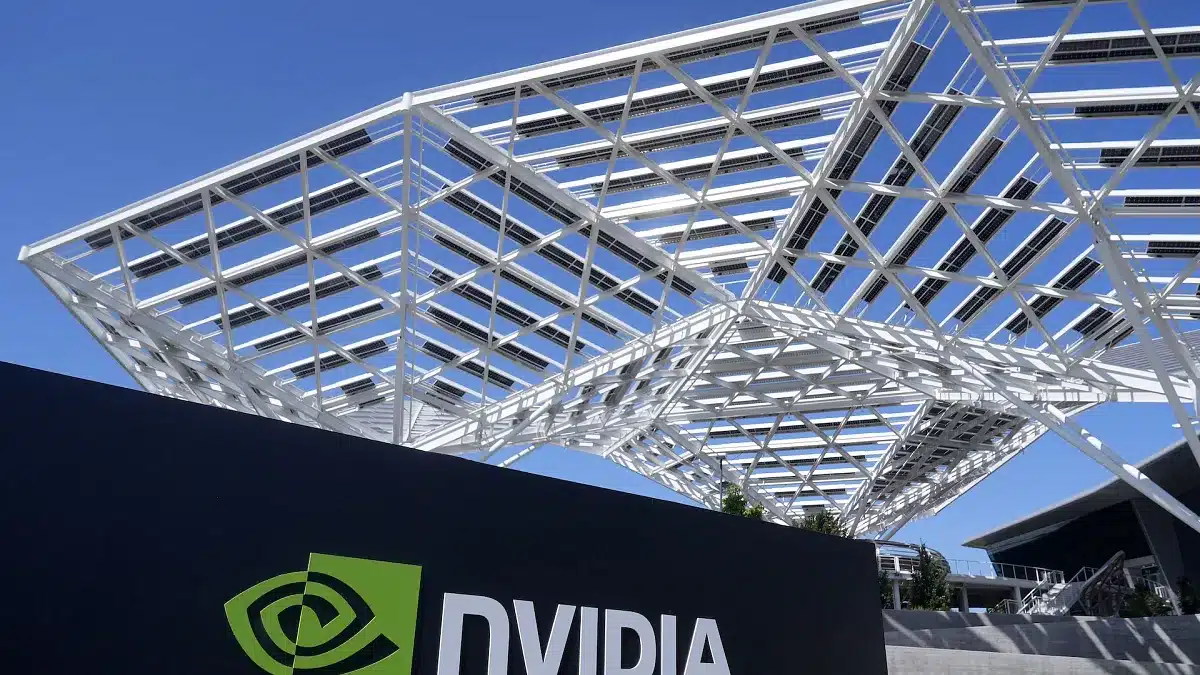Nvidia Navigates Tensions Between the US and China Amid Global Chip Demand

Computer chip giant Nvidia is once again at the forefront of escalating tensions between the United States and China regarding trade and technology. Recently, CEO Jensen Huang traveled to Beijing to engage with senior Chinese officials, coinciding with the U.S. government’s announcement of new export controls on Nvidia’s chips. These measures, aimed at protecting national security, will require Nvidia to obtain licenses for exporting its H20 AI chip to China, a requirement expected to last indefinitely. This situation raises questions about Nvidia’s critical role in the ongoing competition for AI supremacy between the two nations.
Understanding Nvidia’s Role in AI Technology
Nvidia specializes in designing advanced semiconductors that are integral to generative artificial intelligence (AI). This technology allows systems to create new content based on user prompts, similar to applications like ChatGPT. The surge in global demand for AI chips has propelled Nvidia to become one of the most valuable companies worldwide. In November, it briefly surpassed Apple in market capitalization, highlighting its significance in the tech industry. Given the importance of its chips for advancements in generative AI, Nvidia’s relationship with China has come under scrutiny from successive U.S. administrations. The U.S. government hopes that the new export controls will hinder China’s progress in developing advanced AI chips, particularly in military applications, thereby securing a competitive edge in the AI race.
Impact of U.S. Restrictions on Nvidia’s H20 Chips
U.S. restrictions on Nvidia’s chip sales to China are not a new phenomenon. In 2022, the Biden administration implemented export controls on advanced semiconductors, prompting Nvidia to design its H20 chip to comply with these regulations. A more powerful chip, the H100, has already been banned from sale in China. However, the emergence of DeepSeek, a Chinese generative AI company, has raised new concerns in the U.S. about the potential for even less powerful chips to facilitate significant technological advancements. DeepSeek claims it can operate effectively with less advanced chips, increasing demand for Nvidia’s H20 chips among major Chinese tech firms like Tencent, Alibaba, and ByteDance, the parent company of TikTok. With no grace period for the new restrictions, Nvidia anticipates a loss of $5.5 billion from orders it can no longer fulfill. Analysts suggest that while the U.S. curbs may challenge China’s AI landscape, they are unlikely to halt its overall development.
Jensen Huang’s Strategic Visit to China
China represents a vital market for Nvidia, accounting for 13% of its total sales last year, although this is significantly less than the nearly 50% share from the United States. Huang’s recent trip to Beijing is viewed as an effort to strengthen Nvidia’s business ties in China despite the new export controls. During his meeting with Ren Hongbin, the head of the China Council for the Promotion of International Trade, Huang expressed a desire to continue cooperation with China. Reports indicate that his visit also included discussions with DeepSeek’s founder, Liang Wenfeng. Additionally, Chinese official He Lifeng emphasized the vast investment and consumption potential of China’s market during his conversation with Huang.
Consequences of Export Controls on U.S.-China Relations
The newly imposed export controls are part of a broader U.S. strategy to reduce reliance on China for advanced technology and to encourage semiconductor production within the United States. Nvidia recently announced plans to invest up to $500 billion in AI servers domestically. President Donald Trump claimed that his re-election influenced Nvidia’s decision to expand its U.S. operations. Furthermore, Taiwanese semiconductor manufacturer TSMC, which produces Nvidia’s chips, revealed plans to invest an additional $100 billion in advanced manufacturing facilities in Arizona. Experts suggest that these developments indicate a growing polarization in global technology, with increasing separation between U.S. and Chinese systems. As a result, the tech landscape is likely to become less global and subject to more stringent restrictions.
Observer Voice is the one stop site for National, International news, Sports, Editor’s Choice, Art/culture contents, Quotes and much more. We also cover historical contents. Historical contents includes World History, Indian History, and what happened today. The website also covers Entertainment across the India and World.
Follow Us on Twitter, Instagram, Facebook, & LinkedIn

